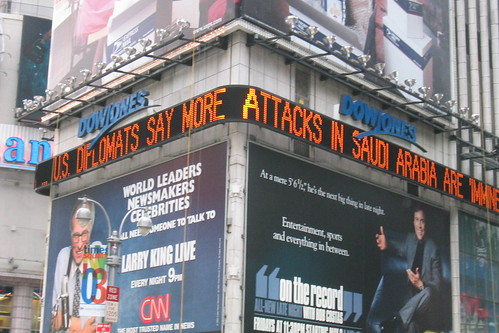During my trip to Maui, i brought along the book “The Post-American World” by Fareed Zakaria. It’s a good read (not done yet). One part i really liked at the begging was when he was talking about how war and organized violence have declined substantially over the past 60 years – and dramatically over the last two decades. This was news to me. He writes:
The general magnitude of global warfare has decreased by over 60% [since the mid-1980’s], falling by the end of 2004 to its lowest level since the late 1950’s. Violence increased steadily throughout the Cold War – increasing sixfold between the 1950’s and early 1990’s – but the trend peaked just before the collapse of the Soviet Union in 1991 and the extent of warfare among and within states lessened by nearly half in the first decade after the Cold War.To that Harvard’s professor Steven Pinker argues, “That today we are probably living int he most peaceful time in our species’ existence.”
This seems so contrary to what i feel everyday due to the constant news of terrorism, bombings, airline accidents, etc. Zakaria addresses this saying:
One reason for the mismatch between reality and our sense of it might be that, over these same decades, we have experienced a revolution in information technology that now brings us news from around the world instantly, vividly, and continuiously…. Every weather disturbance is “the story of the century”. Every bomb that explodes is BREAKING NEWS. It is difficult to put this all in context because the information revolution is so new. We didn’t get daily footage on the ~2 million who died in the killing fields of Cambodia in the 1970’s or the million who perished in teh sands of the Iran-Iraq war in the 1908’s

But now the deaths of ten, because they are seen up close, make the world seem more and more dangerous. When, in fact, the opposite is true.